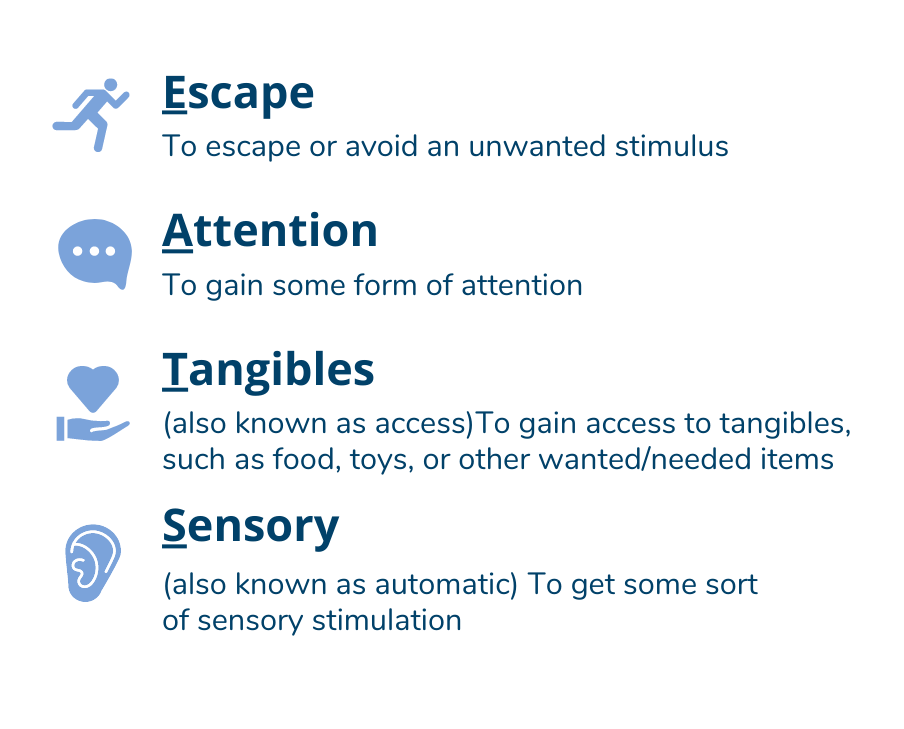“The essential function of challenging behaviour is to communicate to adults that a kid doesn’t possess the skills to handle certain demands in certain situations.” - Ross W. Greene
From baby massage to little yogis, new parents are inundated with classes and workshops centred around that precarious first year of life, yet there seems to be a lack of classes on basic management of behaviour. Only once parents are struggling with problematic behaviour does such support appear, but you don’t wait until a baby is starving before you get advice on breastfeeding, so why let a child's behaviour become overwhelming before learning about the concept? Understandably, businesses are going to target the extremely lucrative maternity market, so maybe tantrums are not on anyone’s mind during those months, but it very quickly becomes important to know what to do next once children start to communicate for more than milk.
What is behaviour?
How an animal or person acts in response to a particular situation or stimulus.
Some behaviours, especially in newborns, are innate, but most are learned, and knowing why is essential to socialising children early so they can participate effectively in the world. As an innocent infant develops into a tyrannical toddler, they acquire communication skills to develop independence, adapt to their surroundings and begin the long slog of learning how to survive on their own. The terrible twos are a well-known phase, but it’s just the stage of child development where children crank up their communication experimentation to see what effectively achieves their goals.
Below are the steps to understanding where behaviours are coming from, which makes it more analytical, less personal, and hopefully alleviates stress in the process.
1. Define the specific behaviour
A common mistake is the use of vague descriptions of behaviour, such as a child being annoying. What are the annoying behaviours?
Examples: bickering; running away; physical or verbal aggression; or screaming.
To understand, we need to be specific.
2. When is the behaviour likely to occur?
Dreading a certain activity means you already know this one. Noting the circumstances in which behaviours are more likely to occur can help in identifying patterns. Is it linked to certain people, times of day or activities?
Example: Billy displays verbal aggression on Sunday mornings when getting ready for swimming.
3. Why is the behaviour being exhibited?
Most people in education have heard the saying “all behaviour is communication,” which is true, but does that help? Instead, viewing behaviour in terms of its function can give us a more useful perspective and aid the analysis of the underlying mechanism. Then, you can then deploy more effective long-term skills, rather than playing whack-a-mole with specific outbursts.
The four functions of behaviour are:
Example: Billy shows verbal aggression in the morning when getting ready for swimming on Sundays because he doesn’t like the cold water.
Staying analytical
We tend to remember and react more when our buttons are pushed, especially in public. Collecting data about a child's behaviour supports more effective decision-making rather than relying on sleep-deprived memory and judgement. Although it is more effort in the short term, basic analyses of a behaviour and the reasons behind it allow us to detach from the emotions of stressful ordeals and view them for what they are, toddler tactics.
Adopting a more analytical view means strategies can then be developed to replace challenging behaviours with more effective communicative skills, which we discuss here.
The Dopamine Industrial Complex - They’ve been hacking adults for centuries, and now they have the kids
Helicopter parents or surveillance drones? - The link between overprotective parenting and the mental health crisis
New academic year, same old bullies - The psychological warfare of school yard tyrants
Worrying about worry - The science behind anxiety and its effect on children
What do rats, apes and children have in common? - How rough-and-tumble play is a biological - and psychological - necessity
Attention deficit or sleep-deprived? - The relationship between ADHD, focus, and sleep.






